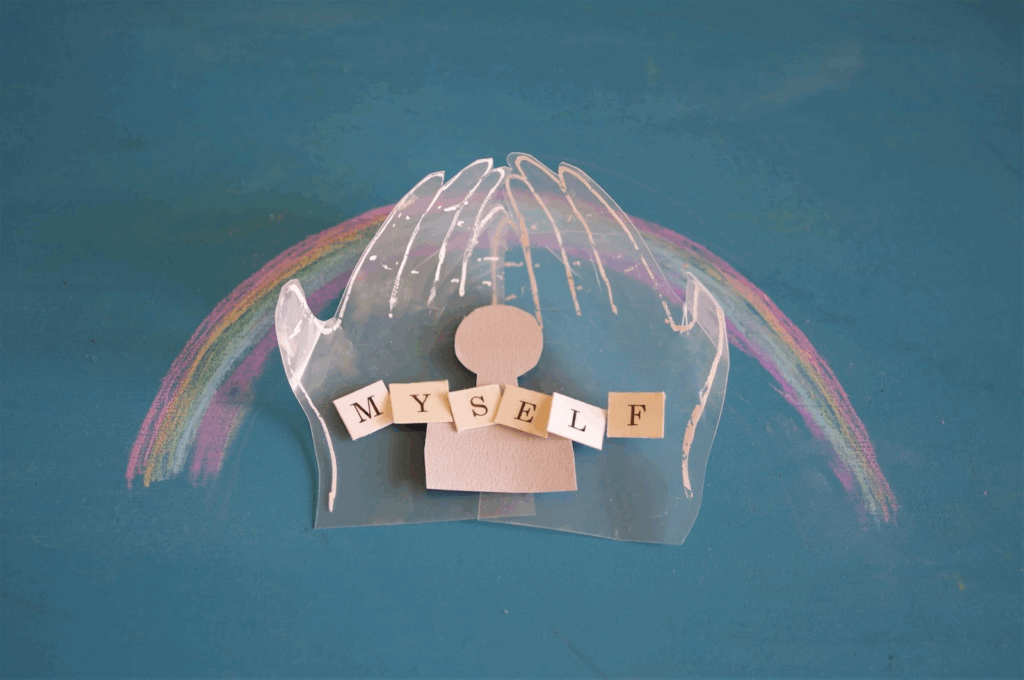Tara Brach RAIN Meditation: Living with Kindness

Tara Brach and the Practice of Self-Compassion
There are moments when we notice that the words we speak to ourselves are harsh. “Why can’t I even do this?” “I failed again.” Sometimes the person who is most critical of us is ourselves.
In this article, we explore the meditation teachings of Tara Brach, an American psychologist and mindfulness teacher. Her work centers on self-compassion and a widely practiced method known as RAIN meditation. Rather than striving to “change,” she invites us to gently be present with our hearts, just as they are. Through this practice, we may rediscover the kindness already within us.
Who Is Tara Brach? A Teacher Bridging Compassion and Mindfulness
Tara Brach is one of the most influential voices in contemporary mindfulness. A clinical psychologist and meditation teacher, she has spent more than three decades weaving together Buddhist wisdom and Western psychology, guiding countless people toward greater compassion and inner peace.
Her work centers on the simple but radical idea that healing begins when we stop blaming ourselves and instead meet each moment with kindness. This approach, grounded in presence rather than self-criticism, has touched millions through her books, teachings, and talks. Her bestselling titles, including Radical Acceptance, Radical Compassion, and Trusting the Gold, have become cornerstones for those seeking to embrace themselves with gentleness and authenticity.
Perhaps her most well-known contribution is the development and popularization of the RAIN meditation technique—an accessible four-step framework that helps people recognize, allow, investigate, and nurture their inner experiences with compassion.
A Look at Her Journey
- 1953: Born in Newark, New Jersey, U.S.
- 1975: Graduated from Clark University with a bachelor’s degree in psychology and political science.
- Mid-1970s: Began her Vipassana (insight) meditation practice, which became the foundation of her life’s work.
- 1988: Completed her Ph.D. in Clinical Psychology at The Fielding Institute (now Fielding Graduate University), focusing her dissertation on the use of meditation in treating eating disorders.
- 1995: Began leading a small meditation group in Bethesda, Maryland, which quickly grew to nearly 200 participants.
- 1998: Founded the Insight Meditation Community of Washington, D.C. (IMCW), today one of the largest non-residential meditation centers in the United States.
- 2003: Published her first major book, Radical Acceptance, establishing her as a leading voice in mindfulness and self-healing.
- 2010: Launched the Tara Brach Podcast, which grew to millions of listeners worldwide.
- 2013: Released True Refuge, offering practical wisdom on finding inner freedom.
- 2016: Co-founded the Mindfulness Meditation Teacher Certification Program (MMTCP) with Jack Kornfield, training thousands of teachers internationally.
- 2019: Published Radical Compassion, expanding her teaching on the RAIN framework for global audiences.
- 2020s: Continues to teach worldwide through retreats, online courses, and her podcast, remaining one of the most trusted and influential figures in modern mindfulness.
What Is RAIN Meditation? Four Steps to Cultivate Self-Compassion

- R (Recognize): Notice what is happening inside right now
- A (Allow): Let it be there, without pushing it away
- I (Investigate): Explore it with curiosity and kindness
- N (Nurture): Offer comfort and compassion to yourself
For example, when anxiety arises, you might say:
R: “I notice there is anxiety.”
A: “It’s okay to feel this .”
I: “What feels so frightening?.”
N: Finally, placing a hand on your heart: “It’s okay, I’m here with you.”
This simple flow is the essence of Tara Brach’s RAIN meditation. By practicing repeatedly, self-compassion naturally grows, allowing us to meet anxiety and self-criticism with kindness.
How to Practice Tara Brach’s RAIN Meditation (Beginner-Friendly)
Here is a short guide to practicing RAIN in 5–10 minutes:
- Find a quiet place, close your eyes, and take a few deep breaths
- Recognize the emotions present in your mind
- Allow them to simply be there, without judgment
- Investigate gently where in the body you feel these emotions
- Nurture yourself by placing a hand on your chest and saying, “You’re okay. I’m here with you.”
What matters is not “doing it perfectly,” but practicing with kindness. As Tara Brach often emphasizes, “It’s fine if it feels imperfect.” Even one minute of RAIN can help calm the mind.
Self-Compassion and Science: How Tara Brach’s Meditation Supports the Nervous System
Psychology and neuroscience research show that self-compassion reduces stress and strengthens resilience. Practices like RAIN meditation have been found to influence the nervous system by:
- Calming the over-activation of the amygdala (the brain region linked to fear and anger)
- Supporting the release of oxytocin, the “bonding hormone,” which increases feelings of safety and connection
This shows that not blaming yourself is not indulgence—it is a form of care for the brain and body. By continuing Tara Brach’s meditation, you may notice both mind and body finding greater balance.
Echoes of Radical Acceptance: Self-Compassion in Classical Japanese Poetry
Even in ancient times, people sought ways to hold themselves with gentleness. A poem from the Gosen Wakashū (10th century anthology) reads:
My heart is already so troubled, and yet I find myself falling in love again—why is that so?
In the phrase “my heart is troubled”, there is no rejection of weakness. Instead, it reflects a quiet acceptance: “This is how I am.” This mirrors Tara Brach’s teaching of Radical Acceptance—to embrace ourselves exactly as we are. When we can softly say, “It’s okay as it is,” we step into the doorway of healing. Across centuries, the poet’s voice and Tara Brach’s wisdom converge, offering us timeless lessons in self-compassion.
Making Yourself an Ally Through Meditation
As Tara Brach reminds us, transformation often begins not with changing ourselves, but by being with ourselves as we are. Especially with RAIN meditation, just a few minutes a day can become a gentle anchor:
- It reminds you of safety on sleepless nights
- It softens harsh self-criticism
- It brings a lighter breath in the morning
The true teaching is not perfection, but to be your own ally. Even small steps of self-compassion can grow into lasting kindness for both mind and body.
Frequently Asked Questions

FAQ 1: Can beginners practice Tara Brach’s meditation?
Answer: Yes, it’s very beginner-friendly. RAIN meditation is broken into four simple steps, making it accessible even without prior meditation experience.
Real Results: Research shows that even short RAIN practices of 3–5 minutes significantly reduce stress and increase emotional balance.
Takeaway: Anyone can start easily—this is the strength of Tara Brach’s approach
FAQ 2: How long should I practice RAIN meditation?
Answer: Start with 5–10 minutes a day. Even a few minutes can make a difference.
Real Results: Studies show that brief mindfulness practices of just three minutes already create noticeable ease and improved focus.
Takeaway: Small, consistent practices accumulate real benefits
FAQ 3: What is the difference between Tara Brach’s meditation and Gassho?
Answer: Tara Brach cultivates self-compassion, while Gassho emphasizes stillness through chanting and sound. RAIN is about recognizing and embracing emotions; Gassho uses traditional chants and audio guides to create a sacred, calming space.
Real Results: Many practitioners report using both—first quieting the inner critic with RAIN, then deepening relaxation with Gassho chanting, which together bring peace.
Takeaway: Tara Brach is “inner dialogue,” while Gassho is “sound and sacred space”
FAQ 4: Which books by Tara Brach are recommended?
Answer: Radical Acceptance and Trusting the Gold are highly recommended. Both explore self-compassion with warmth and clarity.
Real Results: These books are widely used by therapists and meditation teachers worldwide to support emotional healing.
Takeaway: Reading Tara Brach’s works helps you understand the deeper context of RAIN meditation
FAQ 5: What is the best environment for Tara Brach’s meditation?
Answer: A quiet, safe, and comfortable space is ideal. Choose a room free from distractions, wear relaxed clothing, and if needed, use a cushion or blanket.
Real Results: Many practitioners practice on park benches, in bed, or even in the bath, often combining RAIN with Gassho chanting to support relaxation.
Takeaway: Reducing outside distractions and creating a safe space makes meditation sustainable
FAQ 6: Do I need to practice every day for it to be effective?
Answer: Not necessarily—several times a week is already beneficial.
Real Results: Studies on self-compassion practices show that practicing three times a week improves sleep quality and emotional stability.
Takeaway: Consistency matters more than perfection
FAQ 7: Is RAIN meditation useful beyond stress and anxiety?
Answer: Yes, it helps with anger and other strong emotions too.
Real Results: Research shows that RAIN meditation reduces reactivity to anger and supports greater emotional regulation.
Takeaway: RAIN works with all emotions, not just anxiety
FAQ 8: Which is easier, Tara Brach’s RAIN meditation or Gassho?
Answer: Both are simple, and you can easily learn either.
Real Results: Many beginners find both accessible and often use them together—starting with Gassho to calm down, then moving into RAIN to process emotions.
Takeaway: Both are easy to begin with, and combining them brings deeper results
FAQ 9: How should I use Tara Brach’s meditation and the Gassho app together?
Answer: Tara Brach nurtures the inner heart; Gassho provides an atmosphere of calm.
Real Results: Users report that starting with Gassho chanting at night and practicing RAIN during the day creates a balanced sense of peace and emotional clarity.
Takeaway: Gassho sets the environment, RAIN nurtures the heart—together they amplify each other
FAQ 10: What should I do if I get distracted during RAIN?
Answer: It’s completely normal to get distracted—just return gently to the steps. Meditation is not about blocking thoughts but noticing when the mind wanders and coming back with kindness.
Real Results: Studies show that even when focus drifts, returning to a simple practice like “Recognize” or “Nurture” quickly restores calm and builds resilience over time.
Takeaway: Distraction is part of the practice—meeting it with gentleness is itself RAIN
Related Articles
- Official Tara Brach WebsiteAccess latest talks, guided meditations.
- Radical Acceptance: A Practical Guide to Tara Brach’s Classic WorkLearn how to let go of self-criticism and cultivate self-compassion.
- Trusting the Gold: Discovering Innate GoodnessReflections and practices to rediscover kindness in daily life.
- What is Self-Compassion? Mindful Self-Compassion and the Practice of Gentle MeditationArticles and experiences with the Gassho meditation app.



